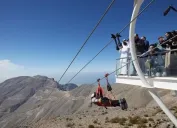5 Winter Travel Mistakes to Avoid
Travel experts say these are the missteps you want to avoid when traveling somewhere new.
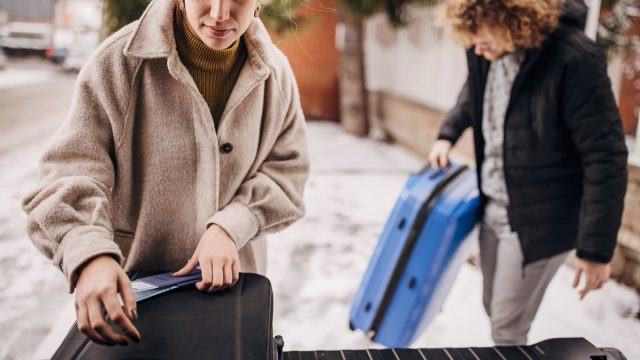
Summer is undoubtedly the peak season for vacations, while the winter is typically reserved for hometown travels to visit our families for the holidays. But that's certainly not the case for everyone. Some people prefer to skip the in-laws altogether and instead take their vacations in the wintertime. After all, winter is typically a cheaper and less crowded time to travel. Of course, different seasons bring about different travel concerns, and there are certain issues you might not be thinking about when choosing a new winter destination. Read on for the five winter travel mistakes our experts advise you to avoid.
READ THIS NEXT: The 10 Best Ski Resorts in the U.S., New Data Shows.
1
Don't forget to consider potential closures.
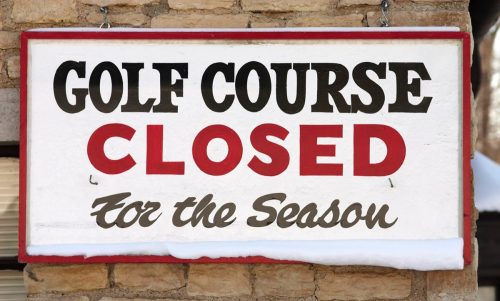
Traveling to popular destinations during the off-season instead of in the summer can be a good way to avoid crowds. But in return, you might have to make some sacrifices along the way. According to Katelynn Sortino, a travel writer and digital nomad, winter travelers should never assume that the availability of amenities will be the same as they were in the summer.
"Many tourist places reduce their capacity or entirely close up shop during winter, which can be great for a more authentic experience but may limit the kinds of activities and day trips that are available," she explains.
Sortino recommends planning the attractions and sites you want to visit beforehand, so that you can make sure they're still operational.
But even if they are, Isobel Walster, a travel expert and owner of the travel blog Castles and Turrets, also suggests that winter travelers confirm what time certain places open, as some adjust their operational hours during the off-season.
"Most museums are open all year round—and this is good if you are interested in indoor entertainment—but make sure you double-check when they open as their hours might change and you don't want to waste a journey," Walster says.
2
Don't ignore the forecast.
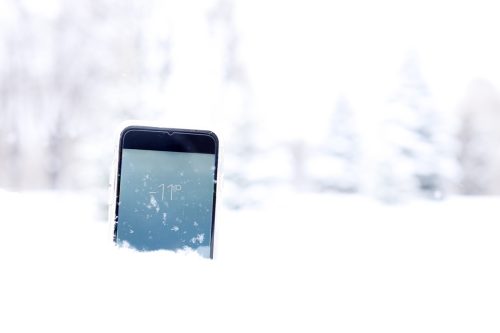
You won't want to go into a winter trip unprepared for the weather either. Nick Mueller, the director of operations for HawaiianIslands.com, recommends travelers do a little bit of in-depth research about the general climate of the area they are planning to visit in advance.
"Does it get cold? Will you need snow gear? Is it warm and tropical? Or is it dry and arid? Whatever you discover, you'll likely want to pack layers," he says. "Ensure that you're prepared for the type of weather that exists in that specific place."
But don't let that be the end of your preparations. You should also consistently check the forecast of your destination leading up to your trip, according to Larry Snider, a travel expert and vice president of operations for Casago Vacation Rentals.
"It's easy to think we know how the weather will turn out, but unless you're from the region, you have no idea," Snider says. "Weather is generally unpredictable. You don't want your plans to be ruined for being neglectful."
READ THIS NEXT: The 10 Most Charming Small Towns in the U.S. for a Winter Getaway.
3
Don't fail to give yourself extra time to get to your destination.

According to Brittany Mendez, a travel expert and the chief marketing officer of FloridaPanhandle.com, you should use weather information in order to exercise caution when booking flights.
"Do not book a connecting flight in a place that has bad winter conditions," Mendez says. "Instead, choose a direct flight or make the conscious choice to book a connecting flight in a place that isn't prone to too much snow."
Giulia Di Leo, an executive in the leisure travel industry with Your Boat Holiday, says snow or strong winds "will more than likely" cause your initial or connecting flight to be canceled or delayed. "During the winter time, most airports tend to have delays, even if the place you are traveling to does not necessarily experience winter," she explains.
As a result, Di Leo recommends against booking anything to do on your expected first day of arrival to your destination. "It's a good idea to not book any activities for your supposed arrival date, as you should leave this day alone to be able to compensate for delays and other unforeseen issues," she notes.
And according to Jessica Schmit, a travel expert who runs the Uprooted Traveler blog, that's important advice for other transportation plans in your trip as well: "Don't book a rental car from an office that closes at 10 p.m. if you're scheduled to land at 8 p.m.," she says. "Building flexibility into your travel schedule is going to be key this winter."
4
Don't forget to plan for transportation once you get there.
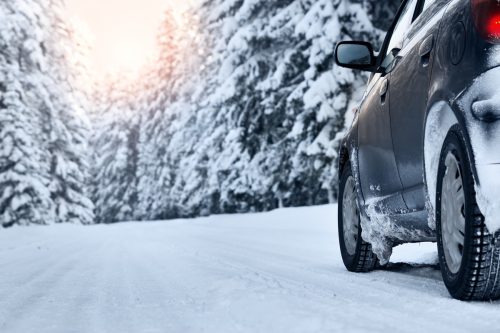
In this case, it's not all about the journey—the destination matters, too. According to Di Leo, you should always research the area before booking a hotel or rental to ensure you can adequately get around.
"You don't want to get there and realize there is no grocery store close, and you don't have a vehicle," she explains. "Especially if the place you are visiting has a lot of snow or bad weather conditions, you might want to look for a place that has things within walking distance, or make financial plans to rent a car or take local transportation."
On the other hand, you shouldn't rent a car during your winter travels if you aren't familiar with snow, Mendez warns. "If you're visiting a destination that is prone to ice and snow, but you aren't used to driving in these conditions, it's the safest bet to have someone else drive you," she says, whether that's via local transportation or a rideshare. "Not only will this keep you safe, but it'll also minimize any stress from figuring out the snowy roads of a new place."
For more travel advice delivered straight to your inbox, sign up for our daily newsletter.
5
Don't skip packing certain essentials.
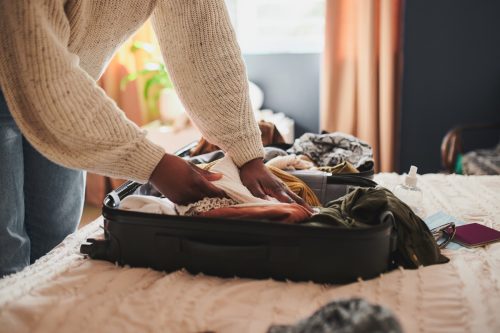
Warm clothing isn't the only thing you need to ensure is in your suitcase for winter travels. Luke Xavier, founder of the popular travel blog USA Rover, says many people skip packing one major essential when traveling during this season: sunscreen.
"Even if it's not sunny out, the sun's UV rays can still be harmful, so it's important to protect your skin," he points out. Xaxier adds, "Don't forget to pack essential items like a first-aid kit, a flashlight, and extra batteries."
These items can help you be prepared for any possible emergencies, according to Jon Callahan, an experienced traveler and founder of Boat Biscuit. If you get stranded or experience another emergency, "you should [also] include items like a blanket, food and water, a map of the area, a list of local hospitals or clinics, and contact information for your insurance company," he says. "By being prepared, you can safely enjoy your winter travels without having to worry about any unexpected problems."
And one other essential you shouldn't fail to pack, especially in case of emergencies? Cash. "Travelers should keep in mind that cash is king in all cultures. Never depend on [just] your bank card," says Brian Jones, a travel expert and the founder of Best in Edmonton. "Always have at least a small quantity of cash on hand. This will allow you to always have a backup if your bank card is declined, lost, or stolen."



